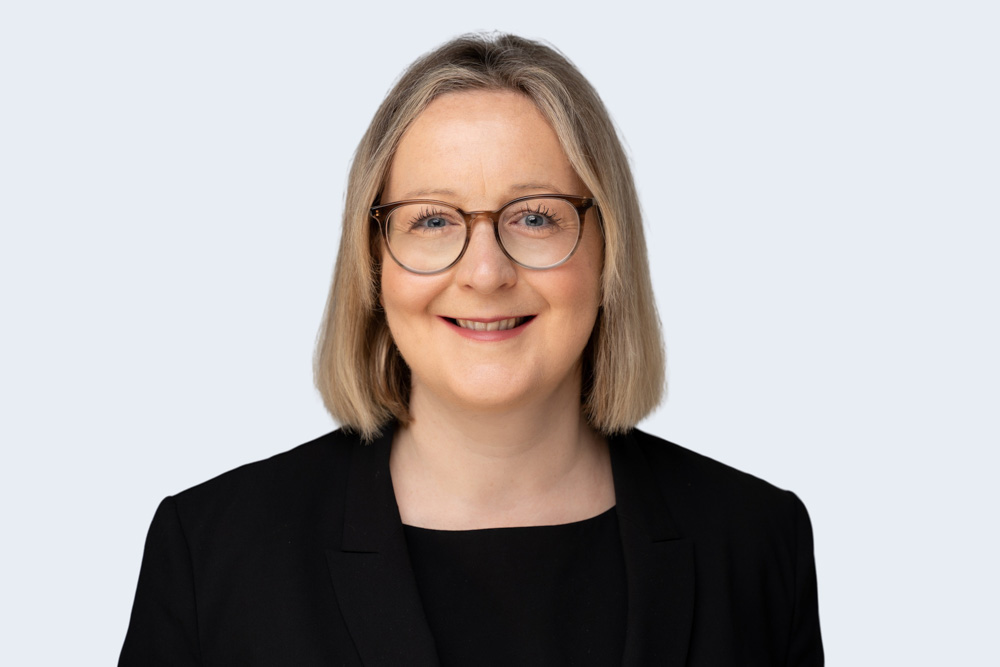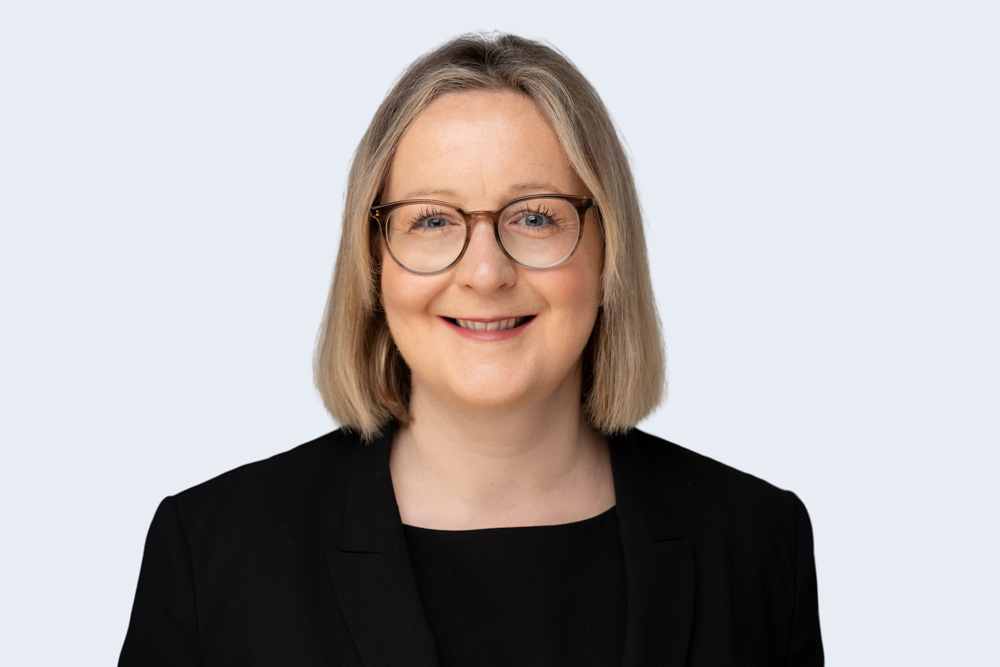


Anest Mathias, Family Solicitor at law firm TV Edwards, often advises on issues around the use and legal parenthood of frozen embryos when couples separate. Here she explains the complexities that can arise in different scenarios and strongly recommends that both parties seek specialist legal advice and counselling
In 2019, frozen embryo transfers made up 41% of all IVF cycles at HFEA licensed clinics. In 2020 there were 102,181 decree absolutes, the final order in a divorce. It is impossible to know how many couples separate with frozen embryos stored at their clinic but no doubt a number of these embryos will have been created using donated eggs, sperm or both.
An embryo cannot be transferred or stored without the consent of those whose gametes were used to create the embryo. When gametes are donated, the clinic will ensure that the correct consents are provided by the donor. If there is a dispute as to continued storage of an embryo a clinic may continue to store the embryo for up to 12 months.
In my work I am asked to advise as to whether embryos can be used post-separation and, if so, what the legal parenthood would be. Parenthood following assisted reproduction is determined in accordance with the Human Fertilisation and Embryology Act 2008. This Act applies across the United Kingdom, although I am a solicitor in England and Wales and cannot advise about the application of the law in Scotland or Northern Ireland or elsewhere. I would always recommend that parties seek legal advice before making a final decision, as well as obtaining specialist counselling, both of which the clinic is likely to require.
Parenthood with donor conception can be complicated but there are two certainties in the UK:
• The woman who gives birth to a child will always be the child’s legal mother.
• A male who is registered as a sperm donor will not be the legal father of any child born as a result of his donation.
For centuries there has been a common law presumption that if a woman is married, her husband will be the father of her child. The parentage laws under the Human Fertilisation and Embryology Act 2008 reflect this presumption and further include females who are in a heterosexual civil partnership and those who are married or in a civil partnership with another woman. In relation to donor conception, where I refer to ‘spouse’ I include husbands, wives and civil partners of either gender.
The presumption that the spouse will be the parent of a woman’s child can be ‘rebutted’ (overturned) with evidence to the contrary. In the case of fertility treatment with donor sperm, and specifically after a couple has separated, to ‘rebut’ the presumption that the spouse will be child’s legal parent it must be shown that the spouse did not consent to the embryo transfer or artificial insemination. The act is silent as to the female’s views as to whether her spouse should be a parent. The act does not require the spouse to consent to parenthood; they will be the legal parent of a child born as a result of donor sperm if they consented to the embryo transfer. This is where it can become tricky for separated couples (see examples two and three below)
There are three main scenarios which I have been asked to advise on and the implications for legal parenthood vary according to a couple’s circumstances:
Scenario 1: Can couples use the embryo(s) with the intention of co-parenting any child in separate homes?
- In many respects this is the simplest in terms of legal parenthood: If the male partner’s sperm was used to create the embryo(s) then he will be the legal father.
- Where donor sperm is used and the woman remains married or in a civil partnership, then there is the presumption that her spouse will be the legal parent. For the avoidance of any doubt, I would advise that fresh consents are recorded in writing before embryo transfer.
- Because there is no legal requirement for a couple to be in a committed or cohabiting relationship before consent to parenthood can be given, if the parties are not married or in a civil partnership and donor sperm is used, both parties can agree that the second party will be the legal parent.
- It may be that the couple already have a child together and have had a positive experience of co-parenting in separate households and want to extend their family. However, if they do not, then we would advise that they consider a co-parenting plan and have detailed discussions prior to embryo transfer. Although a co-parenting plan is not binding in court and no-one could predict every eventuality, discussions are useful as an indicator of compatibility. Disputes between parents which end up before the court can be emotionally and financially crippling.
Scenarios 2 and 3: Can one party use the embryo(s) and the other will have no legal responsibility towards any child?
3: Can one party use any embryo(s) with the intention of a new partner being legal parent?
If the couple are married or in a civil partnership, I would always advise a couple to divorce before pursuing either of these options. Unless exceptional circumstances apply, it now takes a minimum of six months to obtain a divorce.
- If the spouse’s sperm has been used to create the embryo(s), his consent will be required before the embryo can be transferred but, in providing his consent, parenthood is legally conferred on him
- If donor sperm has been used, there may be an issue about the ownership of the embryos and the danger is that in clarifying this, the spouse’s consent to the embryo transfer could be seen to be given and so the spouse could be the legal parent of any child.
If the woman is not married or in a civil partnership and the embryo was created using donor sperm, then no person will be the second parent unless consents to parenthood have been given prior to embryo transfer or artificial insemination. Note that it is imperative that that woman withdraws her consent to her former partner becoming a legal parent to avoid any potential argument that the former partner will be legal parent. The consent to parenthood forms held on the clinic file may not be time specific.
As stated previously the law only excludes sperm donors from legal parenthood. However, once an embryo is created then it is impossible to distinguish the sperm. The HFEA Code 13 embryos originally created for the treatment of their partner and themselves, and those people considering treatment with such embryos, should be: informed of the uncertain legal status of men donating embryos created originally for the treatment of their partner and themselves, and when the embryos are used in the treatment of a single woman”.
Therefore:
- For a single woman, if her previous partner’s sperm was used, then scenario two may be impossible as the previous partner could be treated as the child’s legal parent.
- If a partner’s sperm was used but the couple separate, he could become a single dad and use surrogacy as a route to single parenthood
- With scenario three, based on the fact that a child can have a maximum of two legal parents, it is only possible for the new partner to be the legal parent if the correct consents to parenthood are in place because these consents, in effect, oust the legal parentage of the male whose sperm was used to create the embryo. I would recommend that the male make his consent to the embryo transfer being conditional upon the Person Responsible at the clinic being satisfied that they hold the correct consents for the third party to become legal parent of any child.
Looking Ahead
Previously, a significant pressure point for parties was unless someone was prematurely infertile, there was a maximum ten-year storage period for embryos (extended to 12 years in 2020). Couples nearing the end of the period had to act, perhaps a little more quickly than they would have hoped. However, on 1 July 2022 the law changed so that gametes can now be stored for up to 55 years (with consents to continued storage required every ten years). Donors can store their eggs or embryos for 55 years and do not need to renew their consent.
Whilst this change in the law will undoubtedly help ease the time pressure for many it may potentially bring further legal issues relating to consent and legal parenthood. Ensuring that the correct consents or withdrawals of consents to parenthood are vital to ensure that any child’s parenthood reflects the parties’ intentions. There have been a number of cases where the courts have needed to determine legal parentage following treatment with donor sperm. I would always recommend that robust legal advice is obtained prior to embryo transfer to ensure that any child’s parentage reflects the parties’ intentions and expectations and to avoid conflict at a later date.








